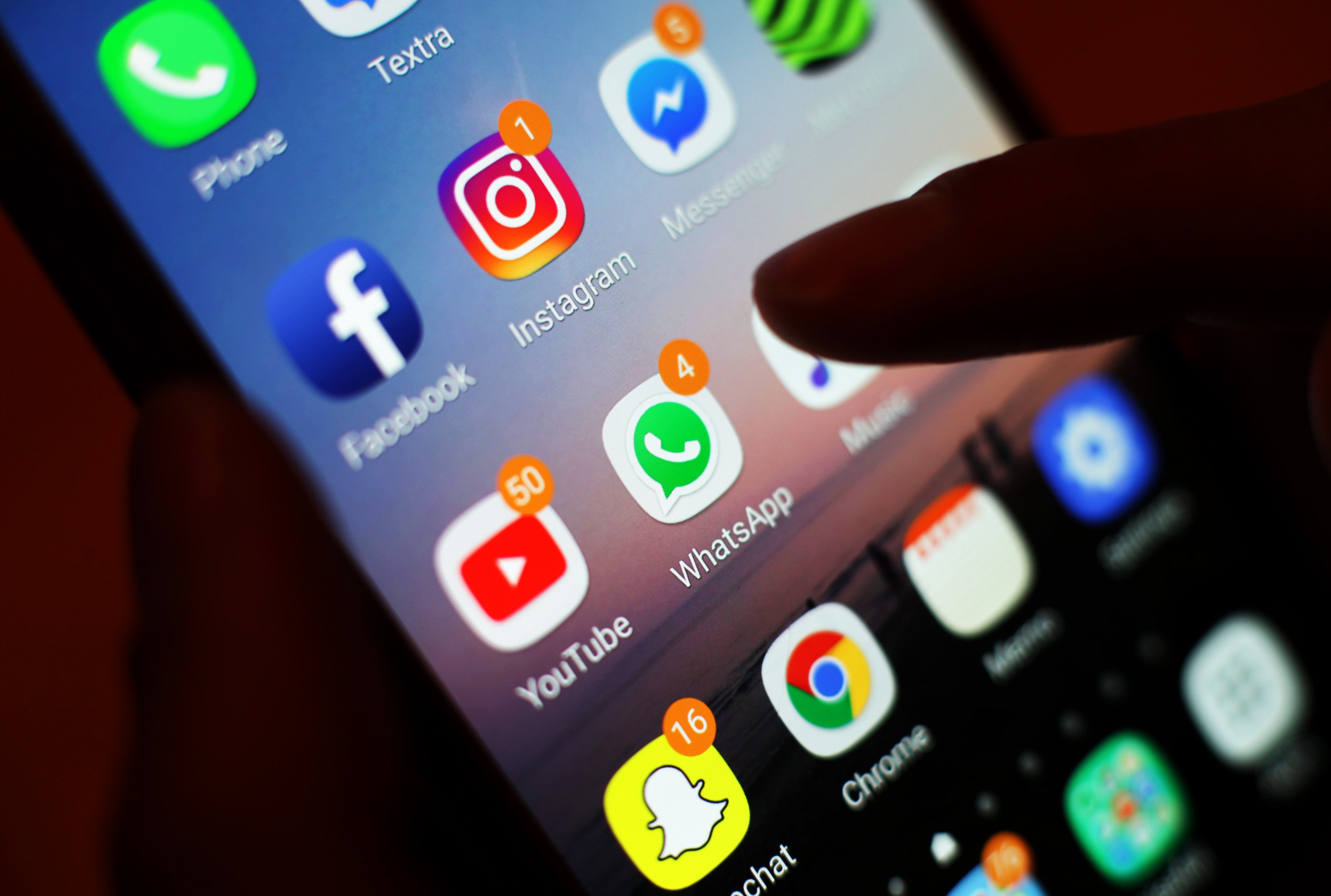Surgeon general demands warning labels on social media: ‘Our children’s well-being is at stake’
Studies show that more time spent on social media can lead to greater risk of mental health harms in adolescents

Your support helps us to tell the story
From reproductive rights to climate change to Big Tech, The Independent is on the ground when the story is developing. Whether it's investigating the financials of Elon Musk's pro-Trump PAC or producing our latest documentary, 'The A Word', which shines a light on the American women fighting for reproductive rights, we know how important it is to parse out the facts from the messaging.
At such a critical moment in US history, we need reporters on the ground. Your donation allows us to keep sending journalists to speak to both sides of the story.
The Independent is trusted by Americans across the entire political spectrum. And unlike many other quality news outlets, we choose not to lock Americans out of our reporting and analysis with paywalls. We believe quality journalism should be available to everyone, paid for by those who can afford it.
Your support makes all the difference.To combat the mental health crisis among young people, the US surgeon general wants all social media platforms to have a tobacco-style warning label notifying users that they are “associated with significant mental health harms for adolescents.”
On Monday, Surgeon General Vivek Murthy penned an impassioned op-ed in The New York Times about the dangers of young people using social media too often and for too long at too young of an age.
Murthy pointed to several studies that show a correlation between mental health harms, like anxiety or depression, and time spent on social media. Calling the current mental health crisis an “emergency,” he said it is “time to require a surgeon general’s warning label” on platforms — similar to how tobacco products contain a warning.
“A surgeon general’s warning label, which requires congressional action, would regularly remind parents and adolescents that social media has not been proved safe,” Murthy wrote.

He added, “Evidence from tobacco studies show that warning labels can increase awareness and change behavior.”
Murthy believes that if the US implemented a surgeon general’s warning on social media platforms, it would incentivize parents to limit or restrict their children’s social media use. This could help reduce the number of young people who experience depression, anxiety or overall bad feelings about themselves.
Recent studies have shown that adolescents between 12 and 15 years old who used social media for more than three hours a day faced twice the risk of having negative mental health than those who didn’t. Nearly half of young people reported feeling worse about their bodies after using social media, according to another study.
The public has known about the dangers of social media for years with stories about the consequences of online bullying or child exploitation frequently in the media.
Murthy says despite the knowledge the public has about social media harms, it remains too easily accessible.
“Why is it that we have failed to respond to the harms of social media when they are no less urgent or widespread than those posed by unsafe cars, planes or food? These harms are not a failure of willpower and parenting; they are the consequence of unleashing powerful technology without adequate safety measures, transparency or accountability,” Murthy wrote.

Although some popular social media platforms have implemented tools that parents and teens can utilize to limit screen time, tech-savvy young people can easily circumvent them.
Members of Congress have held multiple hearings to understand the impact of social media on young people and begin thinking of ways to create meaningful legislation to tackle the problem.
But Murthy pitched the surgeon general’s warning as a first step so parents might think harder about their adolescents’ social media habits and what they permit.
Beyond legislative action, Murthy called on public health leaders, educators, school administrators and parents to collectively agree to keep young people away from social media as often as they can.
This means creating strict boundaries at home and in school to prevent young people from using it before sleeping, while eating or interacting with people face-to-face.
Join our commenting forum
Join thought-provoking conversations, follow other Independent readers and see their replies
Comments